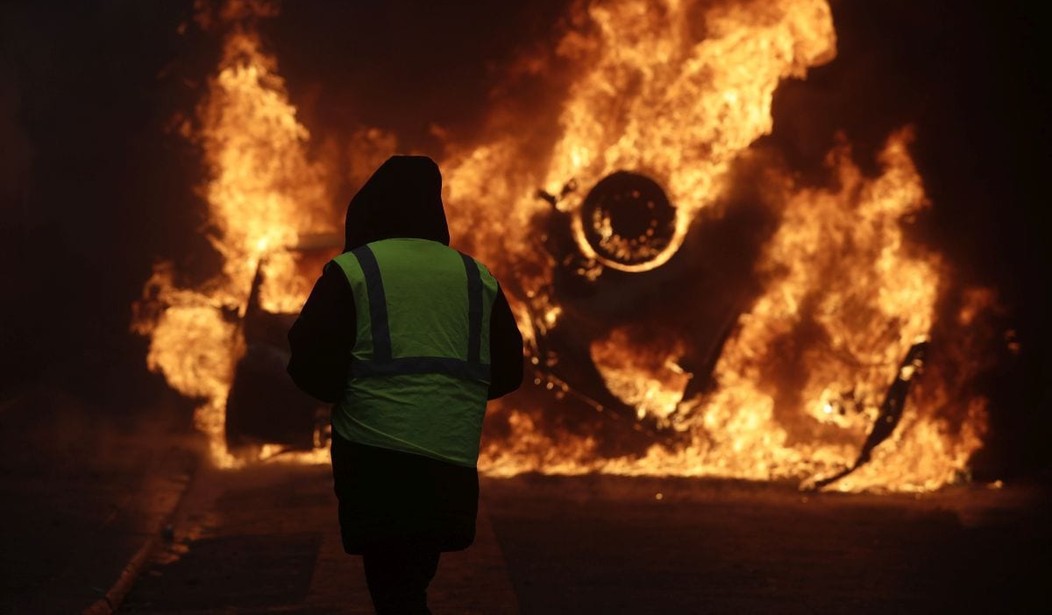Ordinary people from around the world are marching and, in many cases rioting, for change. Some are calling for wholesale revolution while others want a change in government. The proximate causes of the unrest vary, but there are common themes that have emerged from the demonstrations: corruption and incompetence.
The political elites are failing to meet the needs of the people and the people have had enough. In a dozen countries, they have taken to the streets by the hundreds of thousands, even by the millions. There has been pushback from authorities, but even the prospect of death hasn’t deterred citizens from expressing their desperation and displeasure at the status quo.
Here are a few of the more notable flash-points for change around the globe.
HONG KONG
Hong Kong has been battered by five months of often-violent protests amid fears that mainland China is tightening its grip on the semiautonomous region — the worst political crisis since Britain handed its colony back to China in 1997.
The demonstrations began in opposition to an extradition bill that would have allowed criminal suspects in Hong Kong to be sent to mainland China to stand trial.
Hong Kong Chief Executive Carrie Lam said she would withdraw the bill, but the rallies turned into a broader push for more democratic reforms.
Protesters are demanding universal suffrage, an independent probe into alleged police brutality, amnesty for those arrested in the skirmishes and an end to the labeling of the protests as riots.
Fundamentally, the protests are about the Chinese communists reneging on their promises to keep their hands off Hong Kong’s liberties. The people are finally beginning to oppose the slow strangulation of their freedoms.
The pot is beginning to boil and the frog wants out.
LEBANON
The country’s perilous economic situation reached fever pitch last week when the government proposed a host of austerity measures — sending hundreds of thousands of people into the streets.
Demonstrators say they’re angry at corruption within the government and have called on [Prime Minister Saad] Hariri, President Michel Aoun and Parliament Speaker Nabih Berri to step down.
The capital of Beirut has been gripped by five days of protests, with strikes over corruption, austerity measures and a $6 monthly tax on WhatsApp voice calls.
The country’s public debt of about $86 billion is the equivalent of more than 150% of its gross domestic product, according to the BBC, one of the highest debt loads in the world.
For the first time since the French granted Lebanon its freedom in 1946, Christians, Shias and Sunnis are united. They are looking to oust the government. and not even threats from Hezbollah are keeping the people home.
IRAQ
An Iraqi government committee investigating a wave of unrest found that 149 civilians were killed because security forces used excessive force and live fire to quell protests, according to its report, seen by Reuters.
The report, which said more than 70% of the deaths were caused by shots to the head or chest, held senior commanders responsible but stopped short of blaming the prime minister and other top officials, saying there had been no order to shoot.
Protests over high unemployment, poor public services and corruption erupted on Oct. 1, prompting a violent security crackdown. Protesters blame graft and infighting among political leaders for failing to improve their lives even in peacetime, two years after Islamic State was declared defeated in Iraq.
“The committee found that officers and commanders lost control over their forces during the protests (and this) caused chaos,” the panel said in its report. “There were no official orders from the supreme authorities to security forces to open fire toward protesters or use live ammunition at all.”
In Barcelona, Catalan separatists are once again agitating for independence from Spain. Nine separatist leaders were sentenced to long prison terms for their part in a 2017 effort to declare their independence. Half a million took to the streets last weekend.
In Haiti, the poorest nation in this hemisphere, demonstrators have called on President Jovenel Moïse to step down. New York Post:
Thousands of citizens wreaked havoc in the capital of Port-au-Prince on Sunday amid the nation’s devastating fuel shortage and spiraling inflation. Haitians have called for Moïse’s resignation since August, citing shortages and widespread corruption.
Moïse has previously rejected calls for his resignation, saying he would not leave the country in the “hands of armed gangs and drug traffickers.”
Protester Jean Ronald said, “Jovenel is incapable and incompetent, he must pack his bags because Haiti must live.
Chile, Ethiopia, and a half dozen other nations are also in crisis. Will this be another “Arab Spring” where giddy protesters thought they had triumphed only to see the elites reestablish their hold on power? Or is real, fundamental change on the way?










Join the conversation as a VIP Member